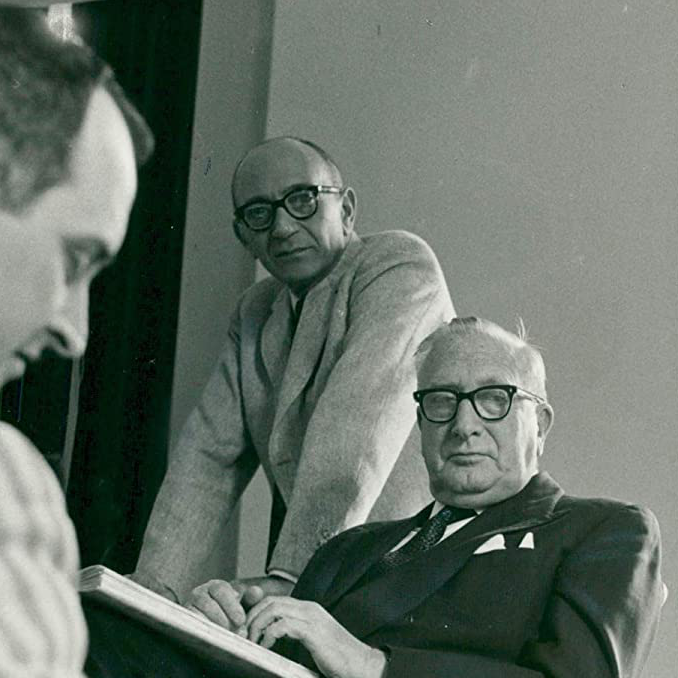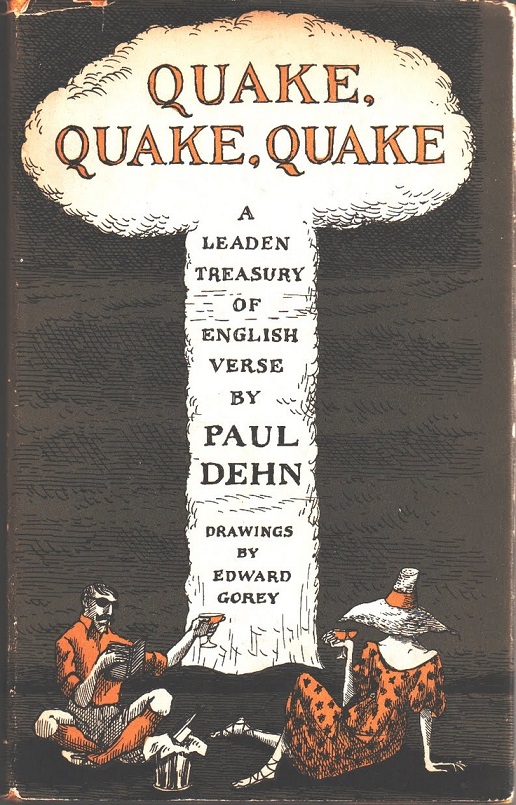
Like many, my acquaintance with Mrs. RAVOON came via John Julius Norwich and his wonderful Christmas Crackers. There, he credited fellow commonplace compiler Linda Kelly with introducing him, before presenting the author, the peculiarly obscure Paul Dehn.
I say "peculiarly obscure", because considering the breadth of his accomplishments – screenwriter, critic, librettist, soldier, spy and, of course, poet – he ought to be far better known. Indeed, it's strange that Norwich makes no mention of them: it's not as though he dallied in these areas. As a screenwriter he won both an Oscar and a BAFTA; as a critic he wrote for three national newspapers; as a librettist his works were performed before international audiences; as a soldier he attained the rank of major; as a spy he trained alongside Ian Fleming and Kim Philby and conducted missions in occupied France; as a poet, Philip Larkin selected his Armistice for inclusion in The Oxford Book of Twentieth Century English Verse. Maybe the list was simply overwhelming: perhaps if he had restricted himself to penning one of the most famous dialogues in film history he would be a household name.
“Do you expect me to talk?”
“No, Mr Bond. I expect you to die.”
In his series on Brasenose alumni Bernard Richards gives a tantalisingly brief review of Dehn's life and work and highlights his poetic range, contrasting Larkin's pick
Armistice
It is finished. The enormous dust-cloud over Europe
Lifts like a million swallows; and a light,
Drifting in craters, touches the quiet dead.Now, at the bugle’s hour, before the blood
Cakes in a clean wind on their marble faces,
Making them monuments; before the sun,Hung like a medal on the smoky noon,
Whitens the bone that feeds the earth; before
Wheat-ear springs green again, in the green springAnd they are bread in the bodies of the young:
Be strong to remember how the bread died, screaming;
Gangrene was corn, and monuments went mad.
with this, from his 1961 Edward Gorey-illustrated anthology Quake, Quake, Quake (which, as the subtitle "A Leaden Treasury of English Verse" portends, is a light-hearted rumination on impending nuclear extinction)
A Game of Consequences
Coffee-cups cool on the Vicar’s harmonium,
Clever guests giggle and duffers despond.
Soft as the patter of mouse-feet, the whisper
Of Eversharp Pencil on Basildon Bond.Separate hands scribble separate phrases –
Innocent, each, as the new-driven snow.
What will they spell, when the paper’s unfolded?
Lucifer, only, and Belial know.‘Ready, Miss Montague? Come, Mr Jellaby!’
(Peek at your papers and finger your chins)
‘Shy, Mr. Pomfret? You’d rather the Vicar...?
Oh, good for the Vicar!’ The Vicar begins:‘FAT MR. POMFRET met FROWSTY MISS MONTAGUE
Under the BACK SEAT IN JELLABY’S CART.
He said to her: WILL YOU DO WHAT I WANT TO YOU?
She said to him: THERE’S A SONG IN MY HEART.’What was the Consequence? What did the World say?
Hist, in the silence, to Damocles’ sword!
Today Mr Pomfret has left for Karachi
And little Miss Montague screams in her ward.
Where the first allows its horror to unfurl with an elegiac cadence, in the second we gallop dactylically towards its unfortunate conclusion with the energy and brio reprised in his verses on Mrs. RAVOON.
Dehn was reportedly bemused by the adoption of his heroine as a part of the commons, but in penning his own retrospective contribution he seems to have given his imprimatur. We hope that more will heed his encouragement.
